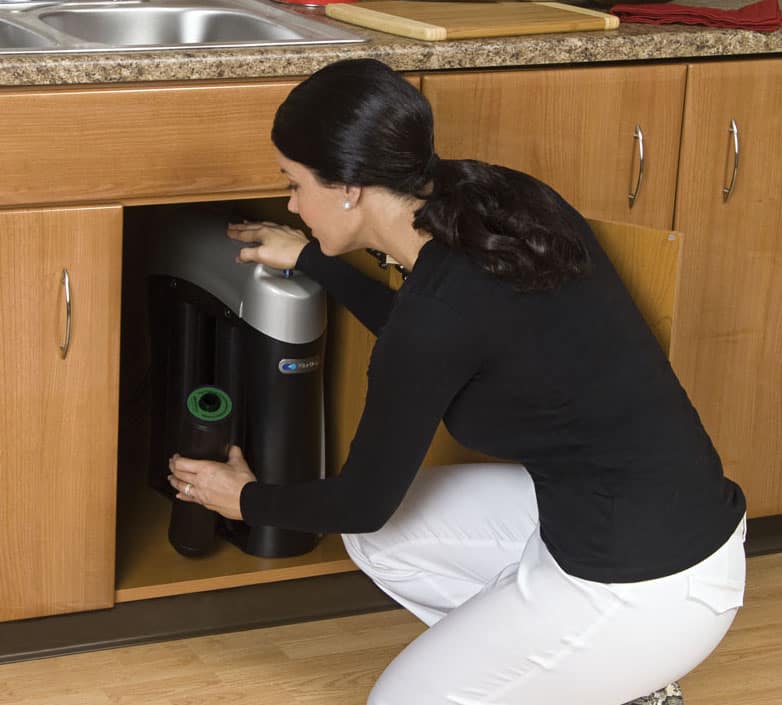There are many different types of water filters and it’s easy to become confused about what type of water filtration is best going to solve your specific water problem. Water filters can be placed into four different categories, sediment, carbon, reverse osmosis (RO) and distillation.
Sediment: This type of water filter is used to remove particulates from the water like dirt, oxidized iron, and other particles that are suspended in the water. A sediment filter acts like a very small screen that filters out the sediments in the water. Sediment filters are sized by the size of particle they remove and can be very small to take out very fine materials like silica or much larger for removing sand from the water.
Carbon: Carbon filters are the most common type of water filter and are a key component of virtually every home water purification system. Carbon is very effective at removing dirt and sediments from water, chlorine, and many other chemicals. Carbon filters have very fine pores that are able to trap the particulates. In addition, the carbon acts like a sponge and is able to absorb the chlorine and other chemicals. It is very important to change the filter as the manufacture recommends ensuring the effectiveness of the filter. This type of filtration is used primarily to improve the taste of water and in removing the objectionable odors, like chlorine.
Reverse Osmosis: This is the most common way to purify water for drinking and cooking. A reverse osmosis system incorporates carbon filtration and a semi permeable membrane. The membrane is used to remove Total Dissolved Solids (TDS) which are minerals, salts, heavy metals, etc. that have dissolved into the water. This provides excellent tasting water that has as much as 99% of most of the impurities that can be in the water removed.
Distillation: A Distiller boils the water and the condensation is collected leaving the total dissolved solids behind, very similar to boiling water in a tea pot and the scale residue collects on the bottle of the kettle. This is an effective way to produce purified water, although, many object to the flat taste the water has.

